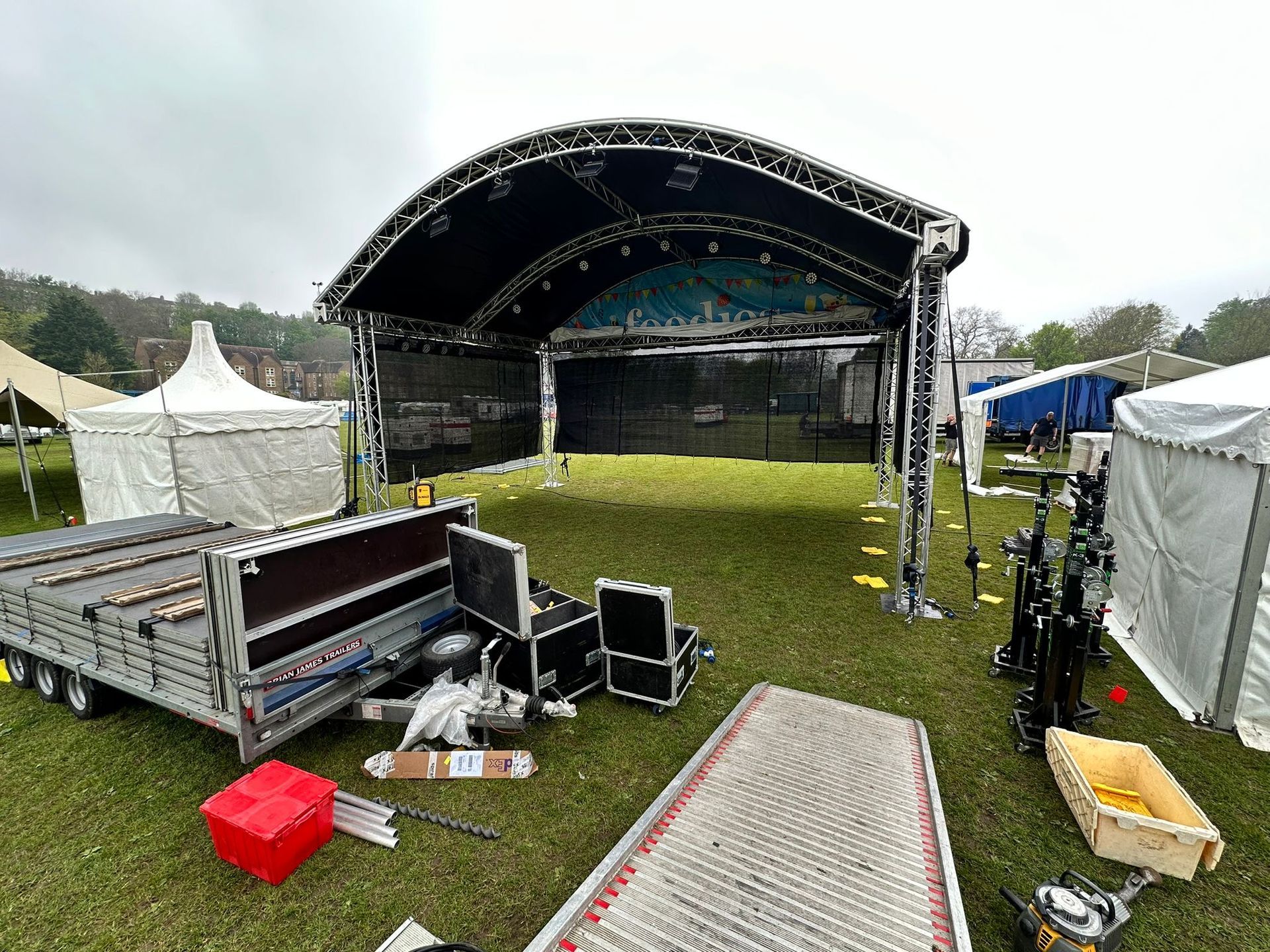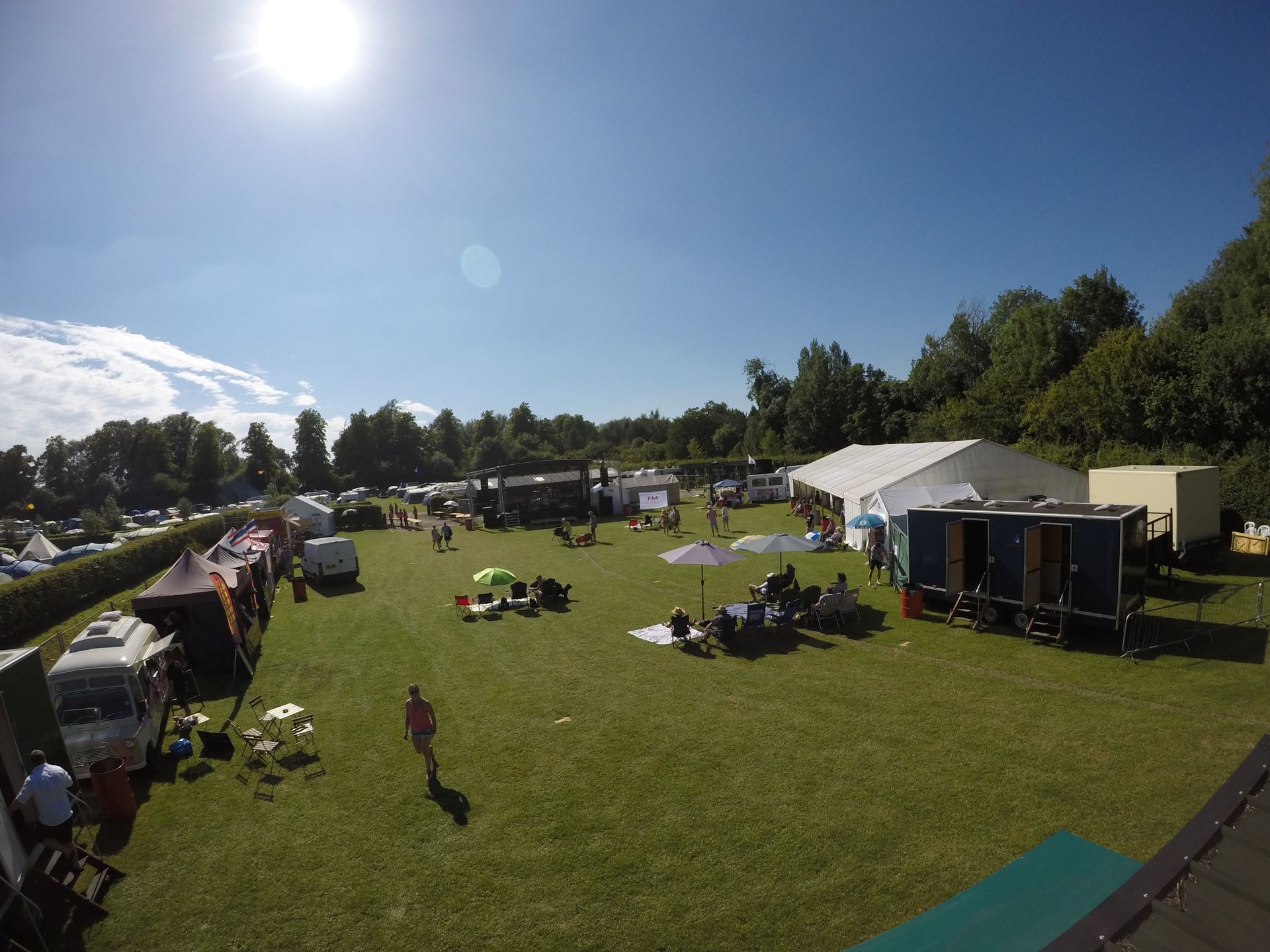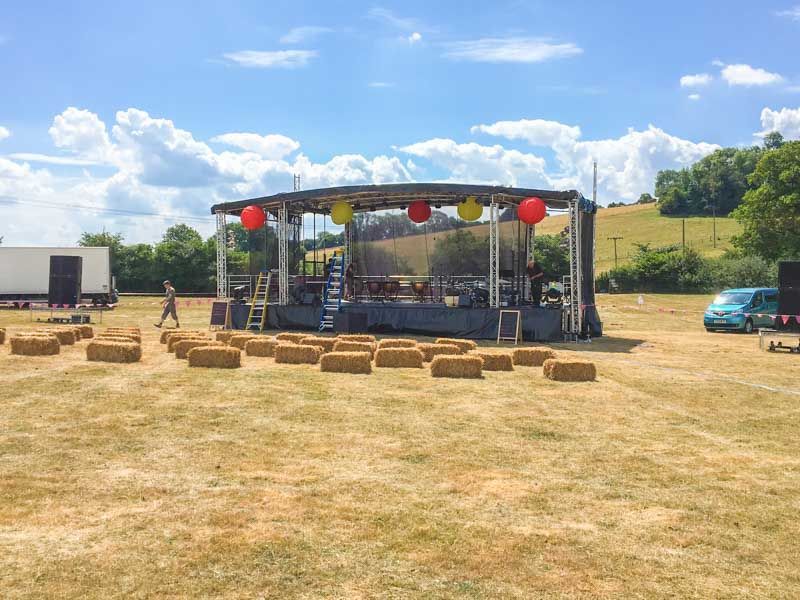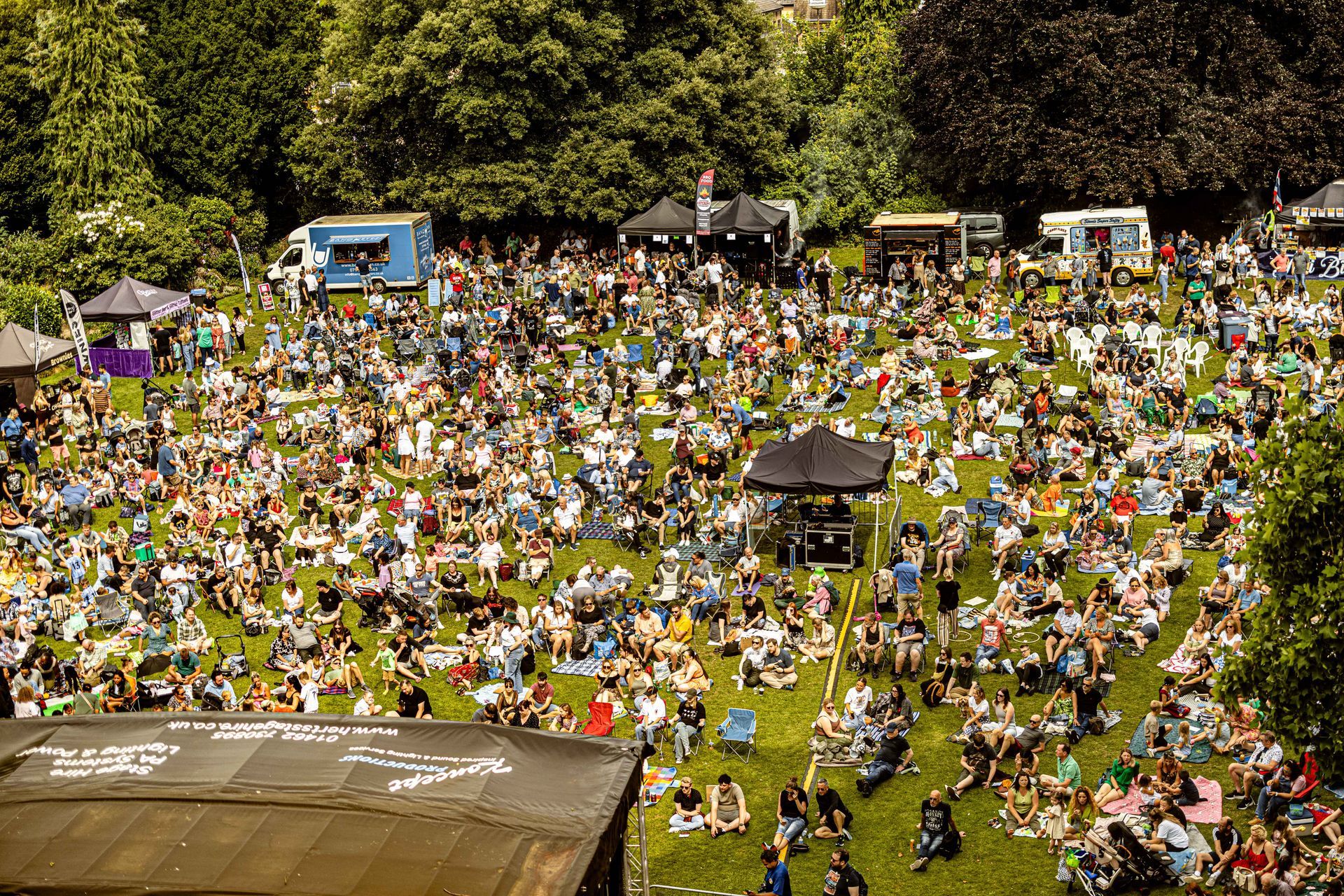Sophie
The Ultimate Guide to Organising an Outdoor Event
Outdoor events are the spine of British summertime entertainment. Green fields, muddy boots, big stages, and great music. Pints of beer or cider, camping and portaloos. A Mister Whippy in the local park while a brass band plays. Memories are made in moments like this but behind the event is an Event Manager who has spent months meticulously pulling all of these elements together.
If you’re setting out on your own outdoor event adventure, then we’re here to help you with our step-by-step guide to organising an outdoor event.
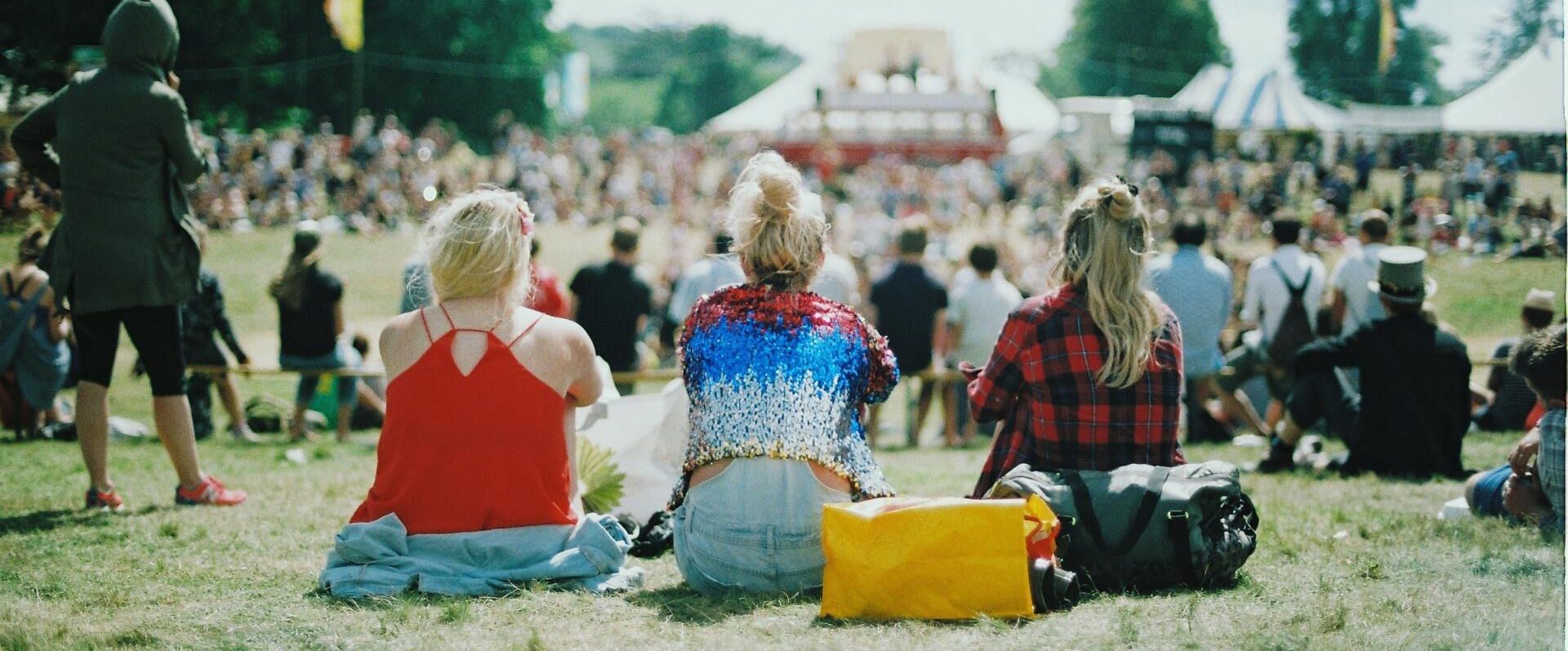
Knowledge is power and planning ahead will help you minimise the stress on the day, leaving you free to deal with anything that pops up unexpectedly during the event.
First, you’ll need an idea and a location to hold the event. Once you’ve got those, you’re ready to get down to the nitty gritty. Here are six steps you will need to take or consider to get started.
Timeline
Mark out your timeline. How many months, weeks, days do you have until the event? Write out each important task and then set yourself deadlines for each of them so that it all gets done before the event rolls around. This keeps you on track with your planning, ensuring nothing falls through the cracks.
Budget
This is arguably one of the most important things to do. The last thing you want is to make a loss on your event and have to find hundreds, if not thousands to pay off your suppliers at the end of it. Listing everything you will need to pay out for beforehand and looking at where your income is coming from (tickets, funding, sponsorship etc) will give you a rough idea on what you can afford (and what you can’t).
Licences
Depending on where your event is being held and what type of entertainment you have, you may be required to get some licences. Don’t skip this step. Contact your local authority to discuss your event and see what licences you will need to apply for. This may be a premises licence (if your venue doesn’t already have one), TEN’s (Temporary Events Notice), market licence etc. It’s better to be safe than have your event shut down halfway through it. You will also need to notify the Safety Advisory Group of your event.
Hired Equipment and Services
As an event planner, it’s your job to bring everything together at one location on a specific day so that your guests can have a great time. You’ll need to consider security, toilet facilities, food and drink vendors, entertainers, staging, sound, lighting and power. How will be people be getting there, do you need to have a managed car park by stewards.
All of these things will need to be hired in to ensure the event runs as smoothly as possible. It’s important to get not only companies that fit in your budget, but that also have the knowledge and experience to run a safe operation. Checking your traders and contractors’ health and safety certificates and procedures is important as the liability of the event is yours. The last thing you want is for costly disasters to happen because you haven’t hired reputable contractors and equipment.
Staffing and Volunteers
Chances are you’re organising this event alone or with a small group of people. Possibly not enough to manage your event site safely. With routine checks and jobs to do throughout the event, you don’t want to be tied up replenishing the toilets, or litter picking when there will be other things coming up that you’ll need to deal with. Therefore, getting a good team of staff/volunteers behind you is crucial. There are companies that provide event staff, or you could advertise locally for volunteers, especially if this is a charity event. You will no doubt need to carry out training for these new members of your team, including all evacuation procedures and emergency protocols, so don’t leave this till the last minute.
Marketing
You’ve got everything in hand behind the scenes but now you need to make sure that people are going to come to your event. Whether you’re selling tickets, or your event is free, a key to its success is making sure people come and enjoy it. Having a marketing plan (and budget!) will go a long way in getting the word out about your event. Free listing sites like Eventbrite are a good place to start but also local print and media. Social media and word of mouth can also be very helpful. Design your posters, your flyers and your banners and get shouting about your event.


